Media coverage
Share

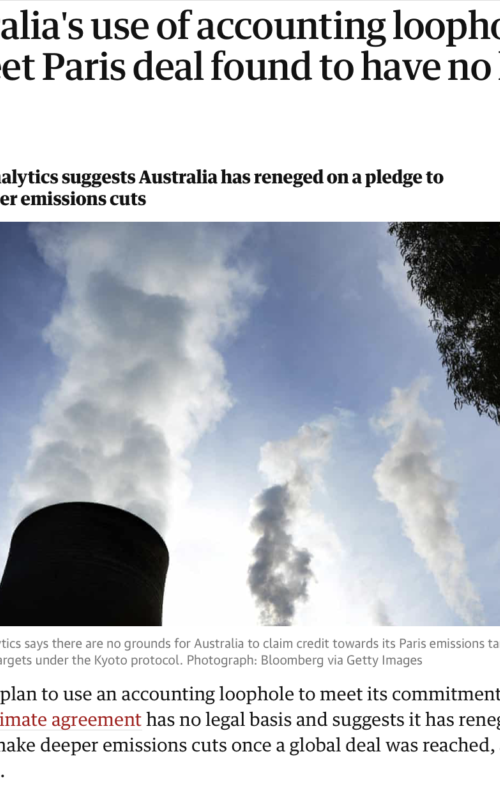
The Guardian
Australia’s plan to use an accounting loophole to meet its commitment under the Paris climate agreement has no legal basis and suggests it has reneged on a pledge to make deeper emissions cuts once a global deal was reached, a new report says. An analysis by Climate Analytics, a Berlin-based science and policy institute, found there were no grounds for Australia to claim credit towards its Paris emissions target for having beaten targets under its predecessor, the Kyoto protocol.
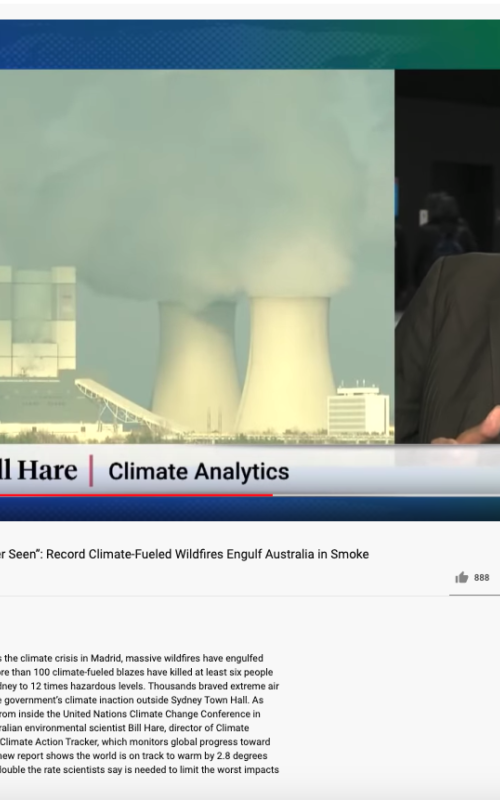
Democracy Now!
Bill Hare, director of Climate Analytics and a coordinator of the Climate Action Tracker (CAT), speaks to the Democracy Now! television programme live from inside the United Nations Climate Change Conference (COP25) in Madrid, Spain. He discusses the Australian wildfires, government inaction on climate change, disappointment at COP25, and the findings from the latest CAT annual update on global climate action, which shows the world is on track to warm by 2.8°C by the end of the century.
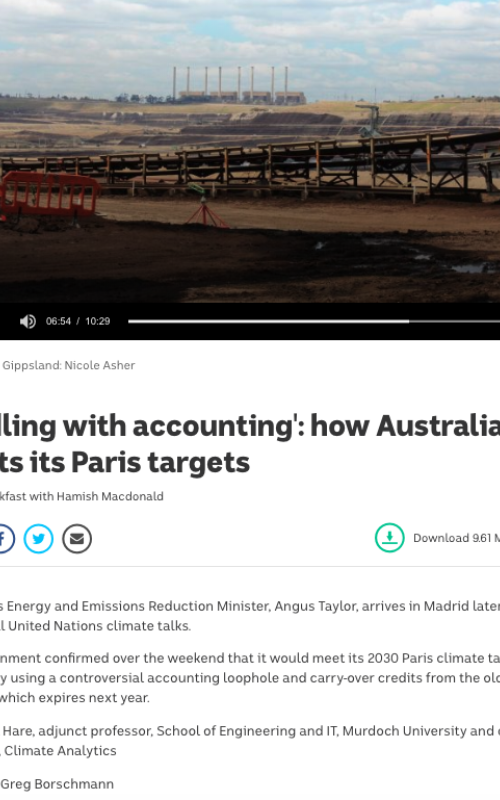
ABC News
Australia's Energy and Emissions Reduction Minister, Angus Taylor, arrives in Madrid later today (9 December) for the annual United Nations climate talks. The Government confirmed over the weekend that it would meet its 2030 Paris climate targets – but only by using a controversial accounting loophole and carry-over credits from the old Kyoto Protocol, which expires next year. Bill Hare discusses this accounting trick and the state of negotiations at the UN climate summit with ABC News.
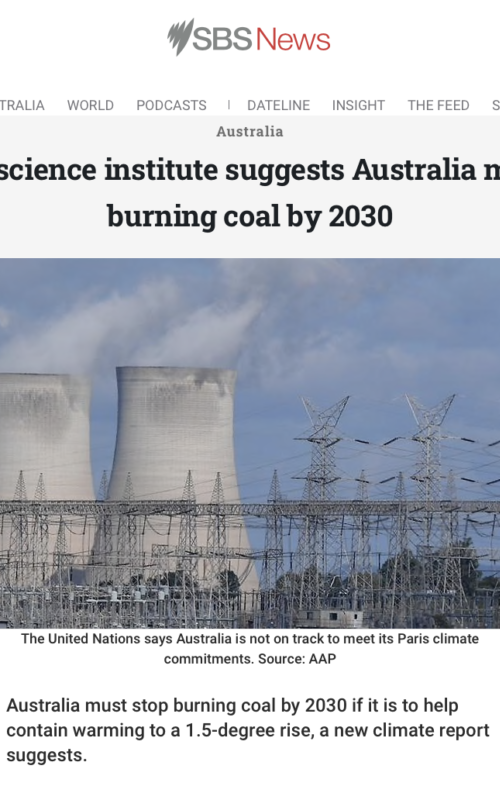
SBS News
Australia needs to stop burning coal by 2030 if it wants to help limit global warming to 1.5 degrees, a new report warns. Non-profit climate science and policy institute Climate Analytics says the government needs a national plan to phase out remaining coal-fired plants - and must take them offline faster than already planned.
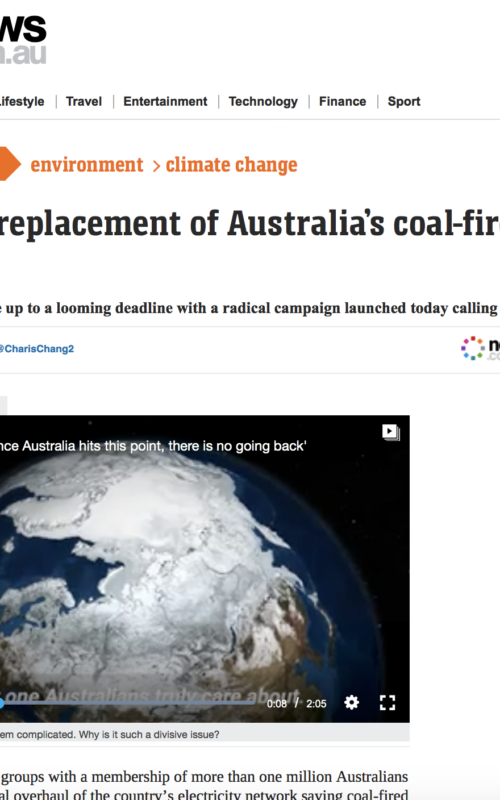
News.com.au
Seven environmental groups with a membership of more than one million Australians are calling for a radical overhaul of the country’s electricity network saying coal-fired power needs to be replaced within 11 years.It comes as Climate Analytics, a non-profit climate science and policy institute, releases a report today that suggests Australia needs to phase out coal-fired power by 2030 in order to “do its bit”.
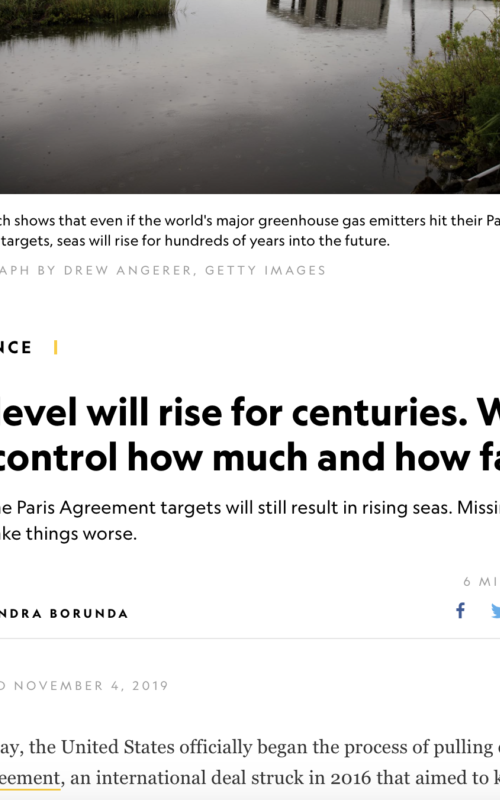
National Geographic
“We can clearly see that there’s a massive sea level rise contribution coming from emissions over such a short time frame, just over the Paris period,” says Alexander Nauels, the lead author of the report and a sea level rise expert at Climate Analytics. “But this is risk we can reduce, by all means, if we can, and it seems like we can.”
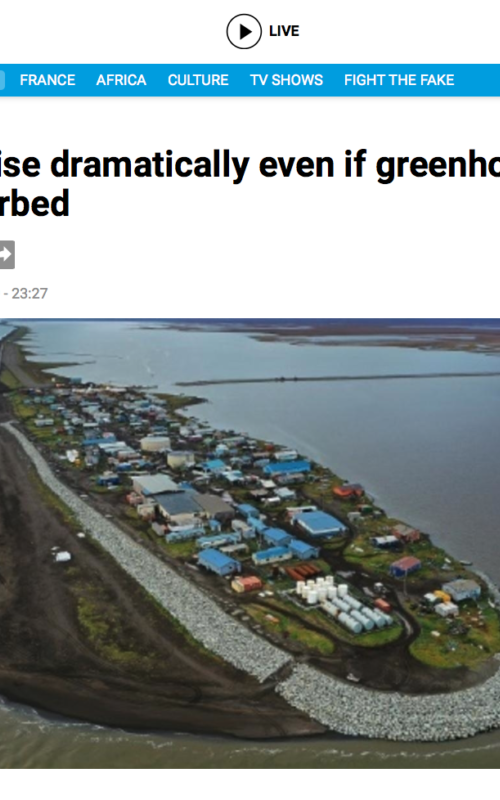
France24 via AFP
Just as an oil tanker steaming ahead at full speed cannot stop immediately, so the dramatic rise in sea levels will continue even if the world manages to slash greenhouse gas emissions to zero by 2030, experts warned in a study published Monday. Emissions between 2015, when the Paris climate change accord was thrashed out, and 2030 would be enough to raise levels by eight centimeters (3.1 inches) by 2100, according to research by experts based in Germany.
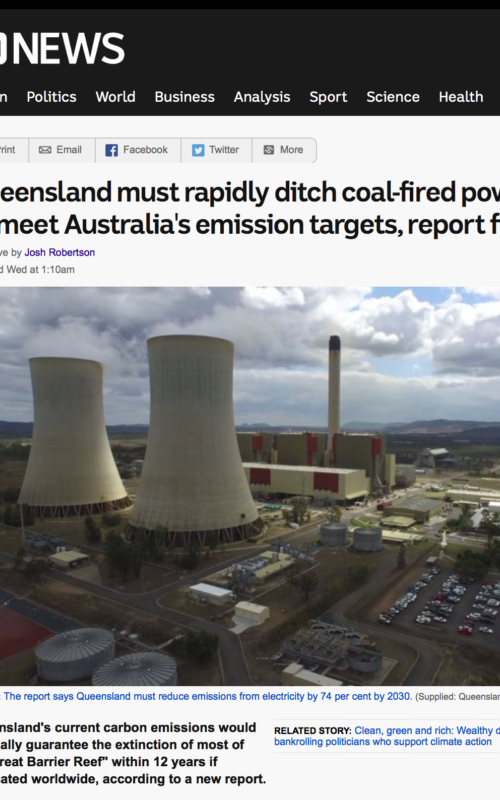
ABC
Queensland's current carbon emissions would "virtually guarantee the extinction of most of the Great Barrier Reef" within 12 years if replicated worldwide, according to a new report. The report by Climate Analytics recommends Queensland stop burning coal for power by 2030 to play its part in keeping global heating to 1.5 Celsius under the UN's Paris Agreement targets, agreed to by Australia in 2016.
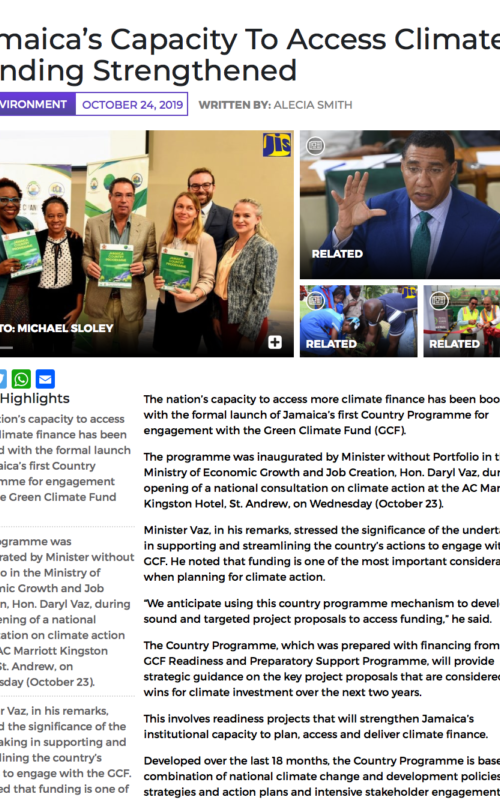
Jamaica Information Service
The nation’s capacity to access more climate finance has been boosted with the formal launch of Jamaica’s first Country Programme for engagement with the Green Climate Fund (GCF). The Country Programme, which was prepared with financing from the GCF Readiness and Preparatory Support Programme, with support from Climate Analytics Inc., a non-profit climate science and policy institute, will provide strategic guidance on the key project proposals that are considered quick wins for climate investment over the next two years.
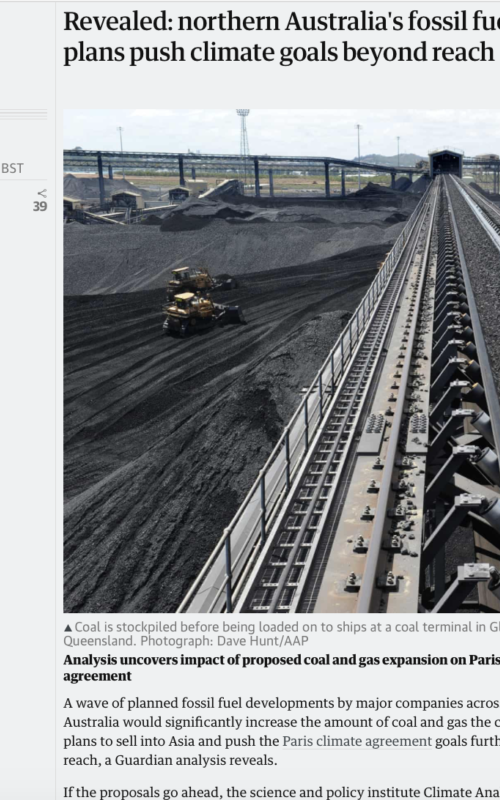
The Guardian
A wave of planned fossil fuel developments by major companies across northern Australia would significantly increase the amount of coal and gas the country plans to sell into Asia and push the Paris climate agreement goals further beyond reach, a Guardian analysis reveals. If the proposals go ahead, the science and policy institute Climate Analytics estimates that by 2030 Australia, with 0.3% of the global population, will be linked to about 13% of the greenhouse gases that can be emitted if the world is to meet the goals set in Paris.